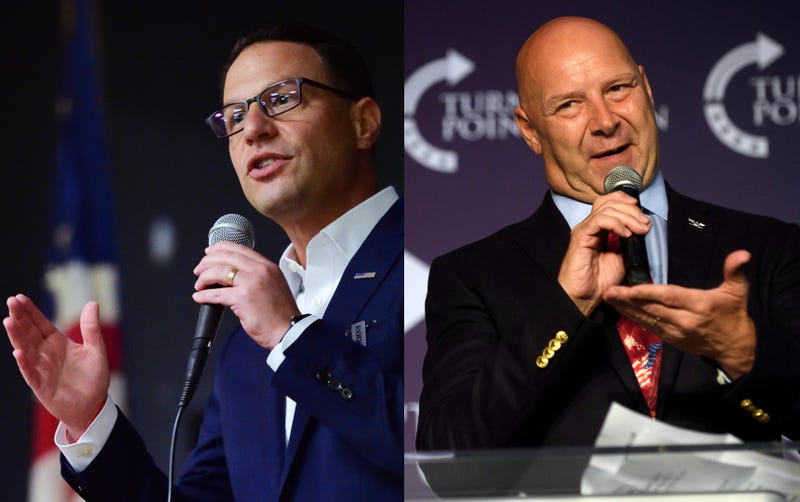
PHILADELPHIA (KYW Newsradio) — Pennsylvania voters have a stark choice for governor this November, between Democrat Josh Shapiro and Republican Doug Mastriano.
Among the key topics influenced by the next governor are climate and energy. Both candidates support the gas and oil industries, but differ greatly in terms of oversight.
Environmentalists and industry advocates tend to be on polar opposites in Pennsylvania. Take fracking, for example.
“It’s got to be done in a safe and in an environmentally friendly manner and it can be done, it can be done, trust me,” said Jim Snell, business manager for Steamfitters Local 420.
Members of that union install and maintain mechanical systems for Pennsylvania’s gas pipeline distribution.
Snell says when it comes to the politics of the industry, it’s pretty cut and dried.
“I think that most politicians have realized that if you are against pipelines, then you’re for higher commodity prices, less security at home and abroad, and a weaker economy,” he said.
“The people I have dealt with over the years that oppose pipelines, I tell them, ‘You should actually turn off your gas furnace this winter,’ and you know they won’t, of course. But they still have tried to have it both ways. They want to complain about infrastructure development, for example pipelines, while benefiting from the energy that delivers and to be quite honest it’s the height of hypocrisy.”
On the other side stands environmental advocate Flora Cardoni, with PennEnvironment.
“Fracking is a huge issue here in the state. It releases methane pollution at every stage of the process which is actually a more potent greenhouse gas than carbon dioxide. The process of fracking itself also pollutes our air and our water and makes people sick,” she said.
“We definitely need to move away from fracking as well as all other forms of fossil fuel extraction development emissions towards a 100% renewable energy.”
When it comes to the candidates for governor, both are for fracking. It’s just a matter of how much regulation and oversight.
That doesn’t mean there aren’t big differences between the nominees.
Mastriano addressed global warming in 2018 during an interview with a conservative radio station based in his hometown of Chambersburg. “It’s fake science,” he said, “and it’s a racket at the academic level.”
The Republican gubernatorial candidate wants to deregulate the state’s fossil fuel industry to make it easier for companies to gather natural resources like oil, gas and coal. When it comes to fracking, he says resources like the Marcellus Shale are underutilized and wants to expand exploration and technology in that region.
Shapiro wants fracking and energy production done responsibly. He vows to hold companies responsible for unlawfully violating any critical environmental protections.
“It is common sense to ensure that fracking isn’t happening next to a school or too close to someone’s home,” he said during a press conference last year..
“It’s common sense for companies to be transparent about the chemicals that they are using near the water supplies of homes and the government needs to set the rules of the road to protect its citizens.”
Shapiro supports the expansion of no drill zones, regulation of smaller pipe lines and wants to invest in zero-carbon technologies which he says can create business and job opportunities.
The Democrat does differ from Gov. Tom Wolf on environment in one key way: he’s been more skeptical of commiting to a regional pact to reduce carbon emissions.
Philadelphia City Councilmember Katherine Gilmore Richardson, chair of the Committee on the Environment, says the public can get involved by not only contacting lawmakers on the importance of pollution reduction, but by voting for those who believe the connection between pollution and global warming is real.
“There is a definite tie between this election and those who believe in climate change and those who do not,” she said, “and we must support the candidates who believe that climate change is real and that there is an urgency now and know that they will do something about it when they get into office.”
That’s a message echoed by Cardoni.
“We know that the majority of Pennsylvanians want climate action, but our elected officials of course have many things influencing their decisions and many priorities to weigh,” she said, “so the more that everyday people can make their voices heard to elected officials at every level, the more that we can show that the people want full climate action, the more we can really push the politics forward and win real results for our climate.”
Related Podcast



